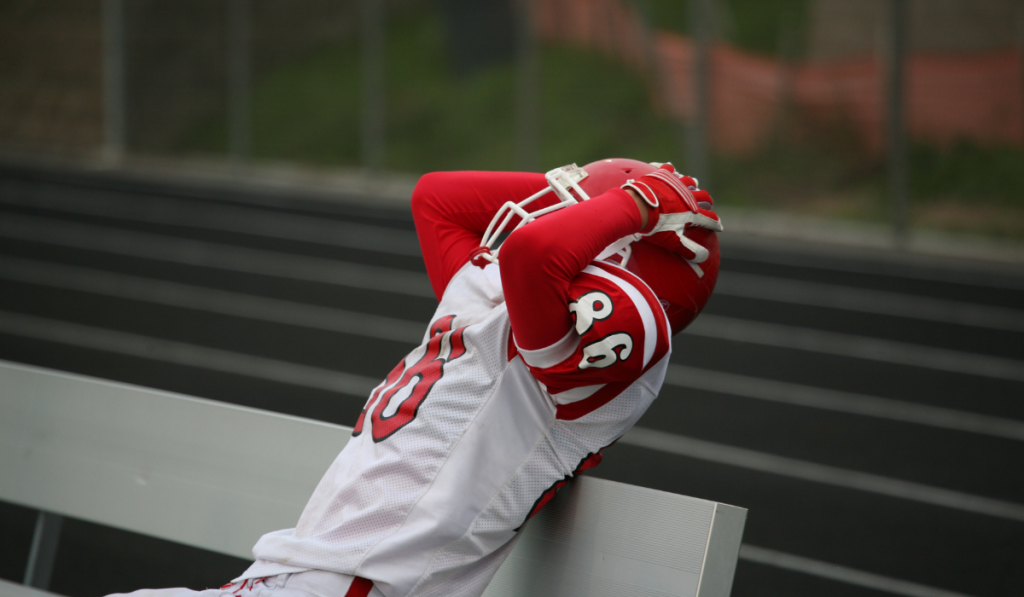
Understanding the Social Pressures Teens Face in School Today
September 26, 2025
Understanding the Far-Reaching Effects of Depression: How It Impacts the Mind and Body
October 14, 2025
Sports often serve as a source of joy, community, and purpose. Whether you’re an athlete, coach, parent, or passionate fan, sports can play a major role in shaping identity, building relationships, and fostering motivation. Yet, the connection between sports and depression is more complex than it might seem. For some, participating in athletics or being a fan provides an outlet for stress relief and a sense of belonging. For others, the pressures, losses, and identity struggles tied to sports can intensify feelings of sadness, anxiety, or hopelessness.
As the fall season arrives and sports dominate weekend schedules, understanding the relationship between sports and depression becomes especially important. Let’s explore how depression can affect those involved in sports — and how sports themselves can impact mental health.
Depression in Athletes: Balancing Pressure and Performance
When people think of athletics, they often imagine strength, endurance, and mental toughness. However, depression in athletes is more common than many realize. Behind the scenes, athletes at all levels — from youth competitors to professionals — often face immense pressure to perform, maintain their reputation, and meet expectations from coaches, teammates, and fans.
These pressures can lead to emotional exhaustion, burnout, and mental health struggles. Injuries, benching, or unexpected losses may leave athletes questioning their worth or identity, especially if much of their self-esteem is tied to their sport. For college and professional athletes, sudden career changes or retirement can also trigger feelings of emptiness or grief.
The culture of “playing through pain” can make matters worse, discouraging players from opening up about mental health challenges. Destigmatizing depression in sport begins with open dialogue, access to counseling, and recognition that emotional well-being is as vital to performance as physical conditioning.
Coaches and Depression: Leadership Under Pressure
Coaches play a crucial role in shaping team morale and individual development, but their own mental health is often overlooked. Juggling high expectations, unpredictable seasons, and the emotional well-being of players can take a toll. Many coaches internalize team outcomes, blaming themselves for poor performance or struggling to separate personal identity from success on the field.
Recognizing the signs of burnout and depression in sports among coaches is crucial. Prioritizing self-care, maintaining supportive peer networks, and seeking professional help when needed can strengthen both leadership and overall team culture.
Parents With Depression and the Youth Sports Experience
For families deeply involved in athletics, the sports calendar can dominate everyday life. While cheering from the sidelines brings many parents pride, it can also amplify stress. Balancing finances, time commitments, and emotional investment in a child’s performance may contribute to anxiety or cause parents with depression to feel overwhelmed.
Parents experiencing depression might also feel guilt for not being fully engaged or may place added pressure on their children to succeed as a way to cope with their own emotions. On the other hand, youth athletes with parents with depression might sense emotional distance or pressure to perform, which can affect their enjoyment of the game.
Supporting parents through accessible mental health resources and fostering open communication within families can help ensure that sports remain a positive experience for everyone.
Sports Fan Depression: When Team Loyalty Affects Mood
Fans, too, can experience the emotional highs and lows of competition. Sports often create a sense of belonging and shared purpose — but this emotional investment can also lead to disappointment, frustration, and sadness when a beloved team underperforms or a season ends in defeat.
The term sports fan depression is increasingly recognized, especially in cases where fans’ moods, social engagement, and self-esteem fluctuate based on their team’s performance. While rooting for a team can bring joy and connection, it’s important for fans to maintain perspective and seek balance. Engaging in other hobbies, maintaining relationships outside of sports, and recognizing when emotions become overwhelming can all help prevent fandom from turning into emotional distress.
When Sports Help — and When They Hurt
While depression in sport can arise from performance pressure or emotional investment, sports can also be a powerful tool for combating depression. For many, playing or watching sports offers a healthy outlet for stress and a sense of purpose.
However, problems can arise when identity becomes overly tied to performance or when competition overshadows enjoyment. Whether you’re an athlete coping with injury, a parent with depression, or a fan struggling after a tough loss, it’s important to recognize that emotional responses are valid — and that help is available.
Supporting Mental Health in the World of Sports
The intersection of sports and depression highlights a simple truth: no one is immune to mental health challenges. Athletes, coaches, parents, and fans all experience emotions that deserve care and attention. By normalizing conversations about depression in athletes and others involved in sports, we can create environments that value mental health just as much as physical achievement.
Whether through professional counseling, peer support, or simply stepping back to reconnect with joy, taking action toward mental wellness ensures that sports — and the people who love them — remain a source of growth, connection, and fulfillment.
_________________________________________________________________________________
Looking for treatment for an eating disorder, anxiety, depression, trauma, or postpartum mood disorder?
Evolve Counseling Services is a specialized team of Licensed Therapists providing treatment in Paoli.



